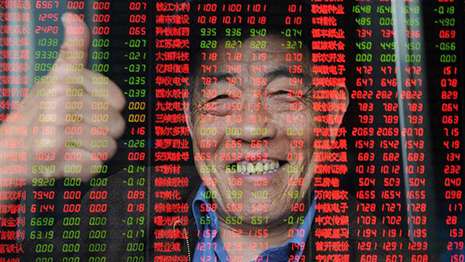China is world’s second largest economy, thus in an interconnected world any turmoil in the Chinese economy will immediately affect the global economy and may shutter the financial power of the US and other major nations.
While most of the global attention has focused on the debate between market bears and bulls and their outlooks for China’s economy, the picture cannot be fully understood without taking into account three important facts about the Chinese economy, an article in The Diplomat reads.
First of all, China’s economic slowdown should be analyzed in two separate dimensions – horizontal and vertical. This means China’s economic performance should be compared with other major economies’ performance (horizontally) and with China’s economy performance in the past (vertically), the author explains.
It becomes clear that for instance in comparison to the European Union’s one percent growth or Japan’s zero growth, China’s economy is performing very well.
There is still an outlook that China’s GDP growth might drop below seven percent this year, and would reach six percent in the coming two months.
A six or seven percent growth will be enough for China to complete the developing stage of its economic transition into a high-quality consumer society. What is more, the current slump in China’s economy was predictable.
Most Chinese economist argued that 10 percent GDP growth would not be sustainable for a long period and was harmful for China’s environment, the author underscores.
Second, one of the main reasons behind the global interest in the Chinese economy is that an economic crisis is believed to lead to social and political instability and transformation.
However, it might not be the case of China, the author argues. He further explains that there is no direct connection between economic crisis and social transformation.
The social and political situation in China is stable with the central government repeatedly voicing its commitment to maintain stability and respond to social needs.
Finally, the most fundamental question about the future of China’s economy is how far its reforms can go, the author writes. Current reforms proposals are facing strong resistance from all kinds of bureaucrats and only an intensification of anti-corruption efforts, particularly in the financial field, is expected, he continues.
To sum up, China plays a significant role in the global economy, and the world is right to be worried about it. Currently, China is in need for serious reforms to be put into effect, and a consensus among politicians and scholars to implement them. Nevertheless, these reforms are likely to begin soon as they are necessary, the author concludes.
More about:
















































